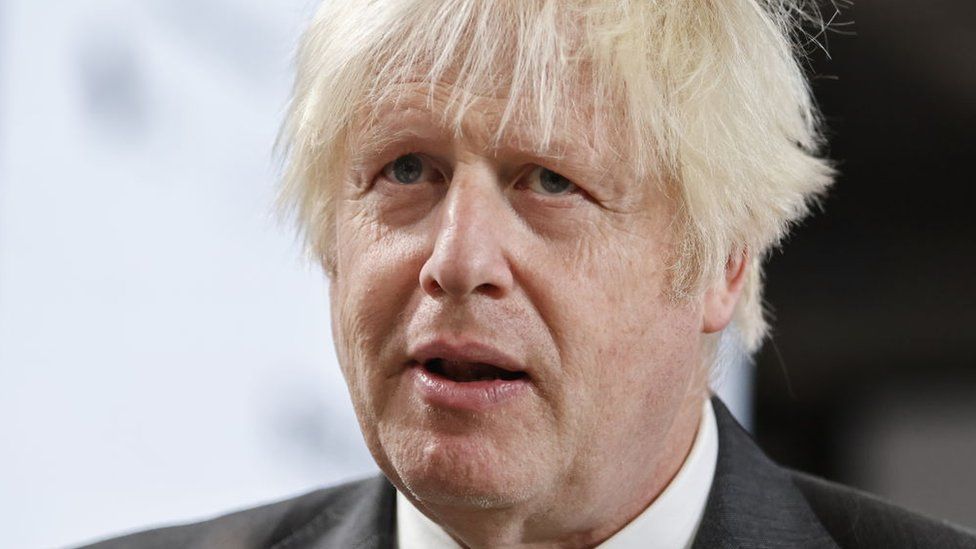 Image source, Getty Images
Image source, Getty Images
Former Conservative Prime Minister Boris Johnson was turned away from his local polling station after forgetting to bring acceptable photo ID.
As first reported by Sky News, he returned later with the necessary ID and was able to vote.
He cast his ballot in South Oxfordshire, where voters are choosing a police and crime commissioner.
New rules requiring photo ID to vote were introduced by Mr Johnson's government in the Elections Act 2022.
The change was rolled out last year, with local elections in May 2023 the first time voters needed to show ID.
According to the Electoral Commission, about 14,000 people were unable to vote in last year's local elections in England as a result of the new rules.
There are 22 acceptable forms of ID, including passports, driving licences, older or Disabled Person's bus passes and Oyster 60+ cards.
People who are registered to vote can also apply for a free document known as a Voter Authority Certificate.
The government has also said it intends to make veterans' ID cards a valid form of voter identification after some former service personnel were turned away from polling stations.
Veterans minister Johnny Mercer apologised on social media to a man who said he was not able to use his veterans' ID card to vote.
"The legislation on acceptable forms of ID came out before the veterans ID cards started coming out in January this year," he wrote.
"I will do all I can to change it before the next one."
A No 10 spokeswoman said: "It is our intention for the new Veteran Card, which was rolled out in January, to be added to the official list."
The government is consulting on adding the card to the list of acceptable voter ID, which already includes armed forces identity cards.
Meanwhile, Conservative MP Tom Hunt said his dyspraxia caused him to lose his passport and he had to arrange an emergency proxy vote.
Asked about problems reported over voter ID, Transport Secretary Mark Harper said there were "bound to be, when you have millions of people voting, a small number of issues".
However, he said he thought "most voters have actually found it perfectly straightforward to vote with the necessary ID across the country".
The Electoral Commission said "most voters who wanted to vote were able to do so", despite voter ID requirements.
"We will now begin to collect evidence from voters, electoral administrators, partner organisations, and campaigners to understand their experiences of the elections and identify any potential obstacles to participation," a spokesman said.

 9 months ago
65
9 months ago
65









